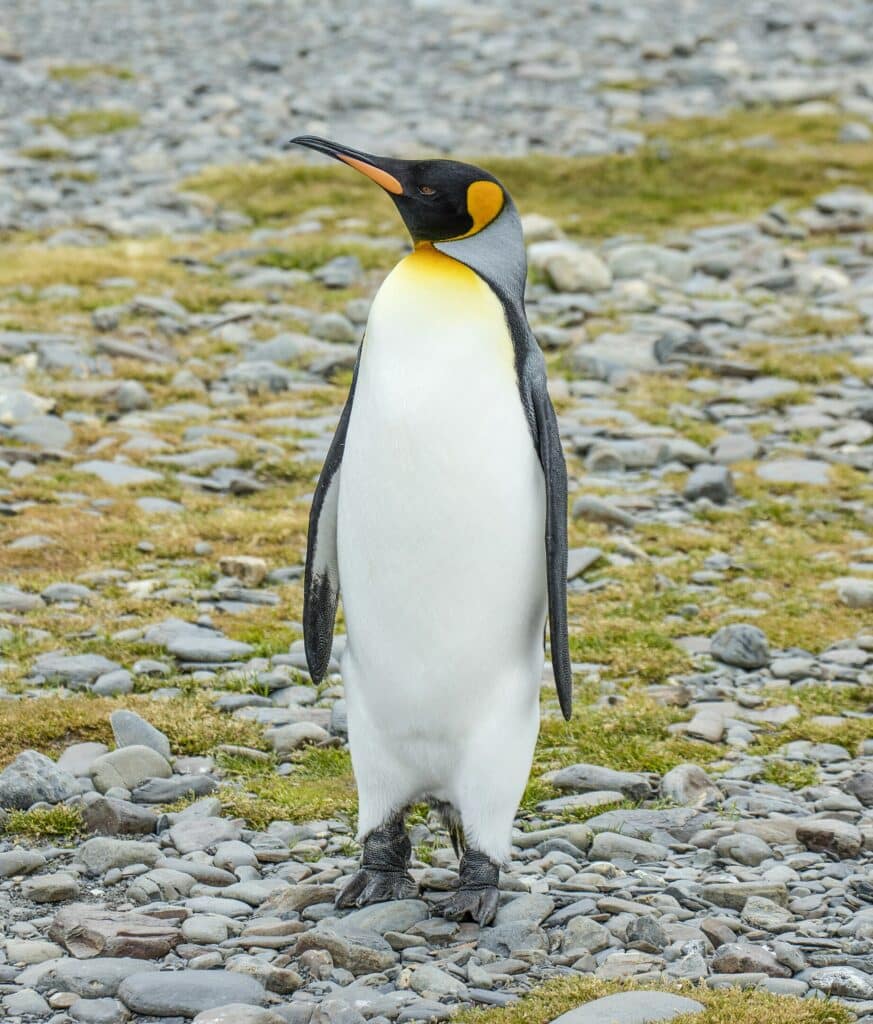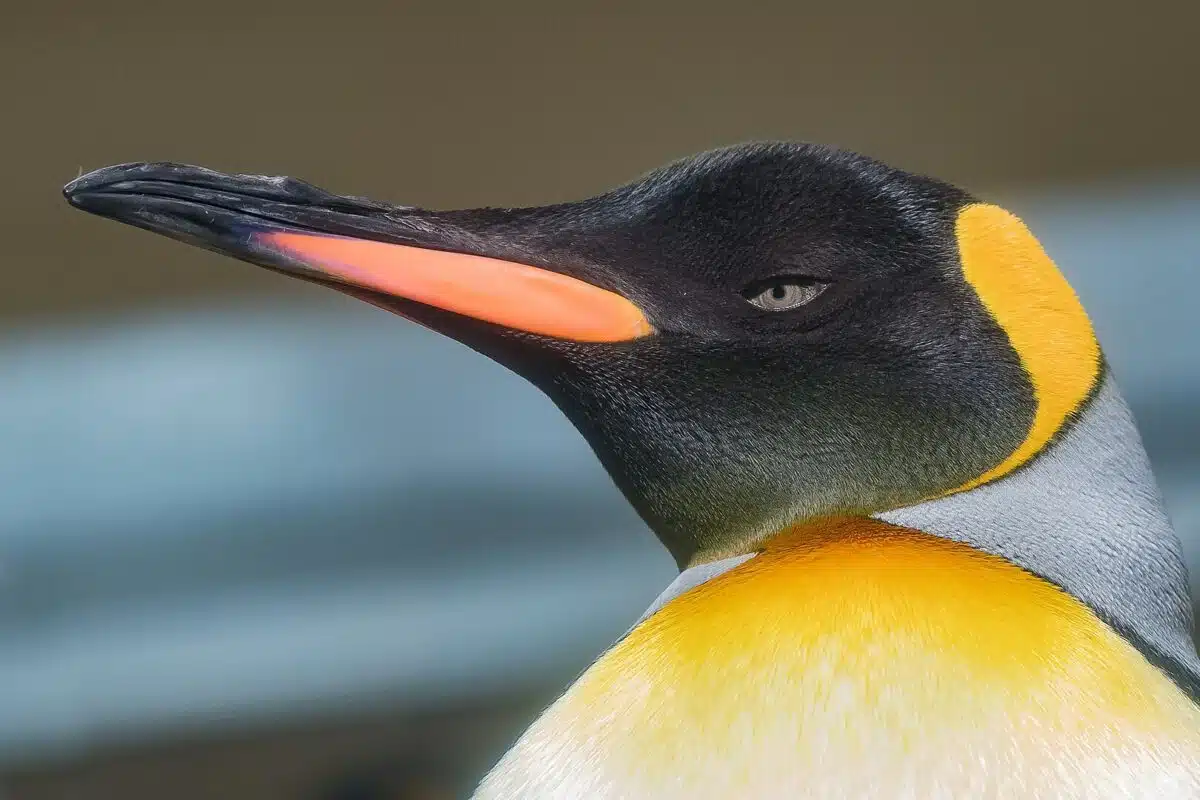A king penguin was recently discovered on a beach in South Australia, astonishingly far from its native Antarctic habitat. This unusual sighting has fascinated both wildlife enthusiasts and experts, given that king penguins are native to the subantarctic regions rather than the warm beaches of Australia.

An Unusual Journey
The king penguin, found on Coorong Beach, had traveled thousands of kilometers from its usual habitat, a journey that puzzles and intrigues scientists. King penguins are known for their striking appearance and considerable size, second only to the emperor penguin in stature, making this individual’s presence on an Australian beach a curious sight.
King Penguins: Majestic Nomads of the Cold
King penguins (Aptenodytes patagonicus) are distinguished by the vivid orange-yellow plumage on their heads and necks, contrasting with their sleek, silver-grey backs. They breed on subantarctic islands, with significant populations found on islands such as South Georgia, Crozet, Kerguelen, and the Falklands. These birds are adapted to cold environments, with a layer of blubber and dense feathers to insulate them against the chill of the Southern Ocean.
Home Range and Habitat
The natural range of the king penguin spans several remote, subantarctic islands where they form large breeding colonies. These colonies are bustling communities where king penguins mate, rear their young, and molt. Despite the harsh conditions of their environment, king penguins have thrived, with populations estimated to be around 1.6 million breeding pairs and growing.
The Significance of the Discovery
The king penguin’s unexpected Australian beach landing underscores wildlife’s unpredictability and potential for long-distance travel, with causes like disorientation or unusual food pursuits.
Conservation and Curiosity
While not currently endangered, King penguins face threats from climate change, which impacts their food supply and breeding grounds. The discovery of one on an Australian beach underscores the importance of monitoring wildlife and their habitats, ensuring the conservation of these majestic birds for future generations.
Conclusion
As scientists and wildlife enthusiasts seek to understand the reasons behind its remarkable journey, this event also emphasizes the need for ongoing conservation efforts to protect these magnificent creatures and their habitats.
You might also enjoy:
Baby Blue Penguin Rescued at Wellington Airport
Unveiling the Mystery of Penguin Highways
Discovering New Emperor Penguin Colonies from Space
Join our Forum for free today!

- The Bond Between a Wild Baby Bison and Her Rescuer - July 20, 2024
- An Excited Husky’s First Ever Time in Snow - July 20, 2024
- Top 20 Colorful Species To Brighten Your Day - July 14, 2024


